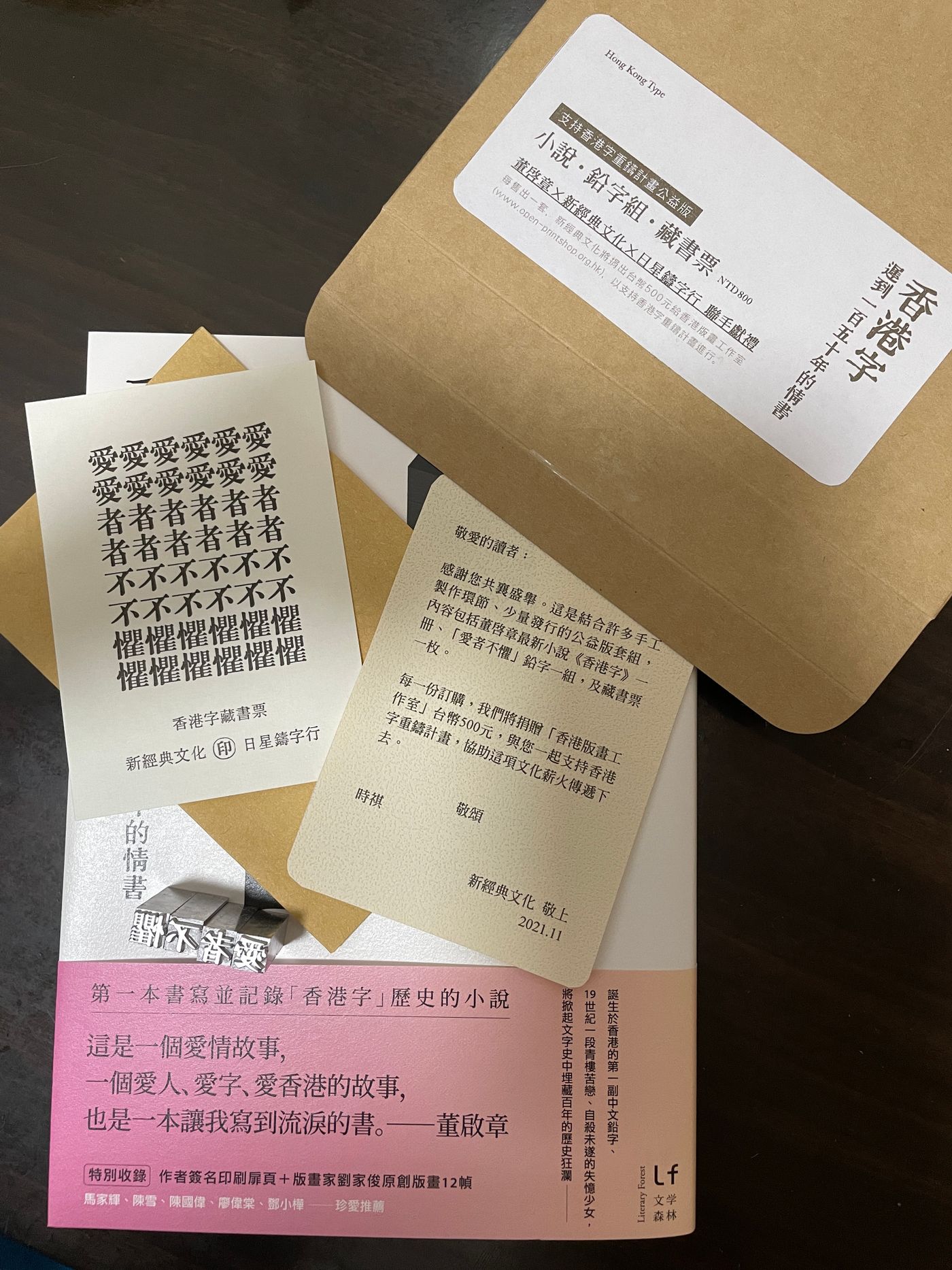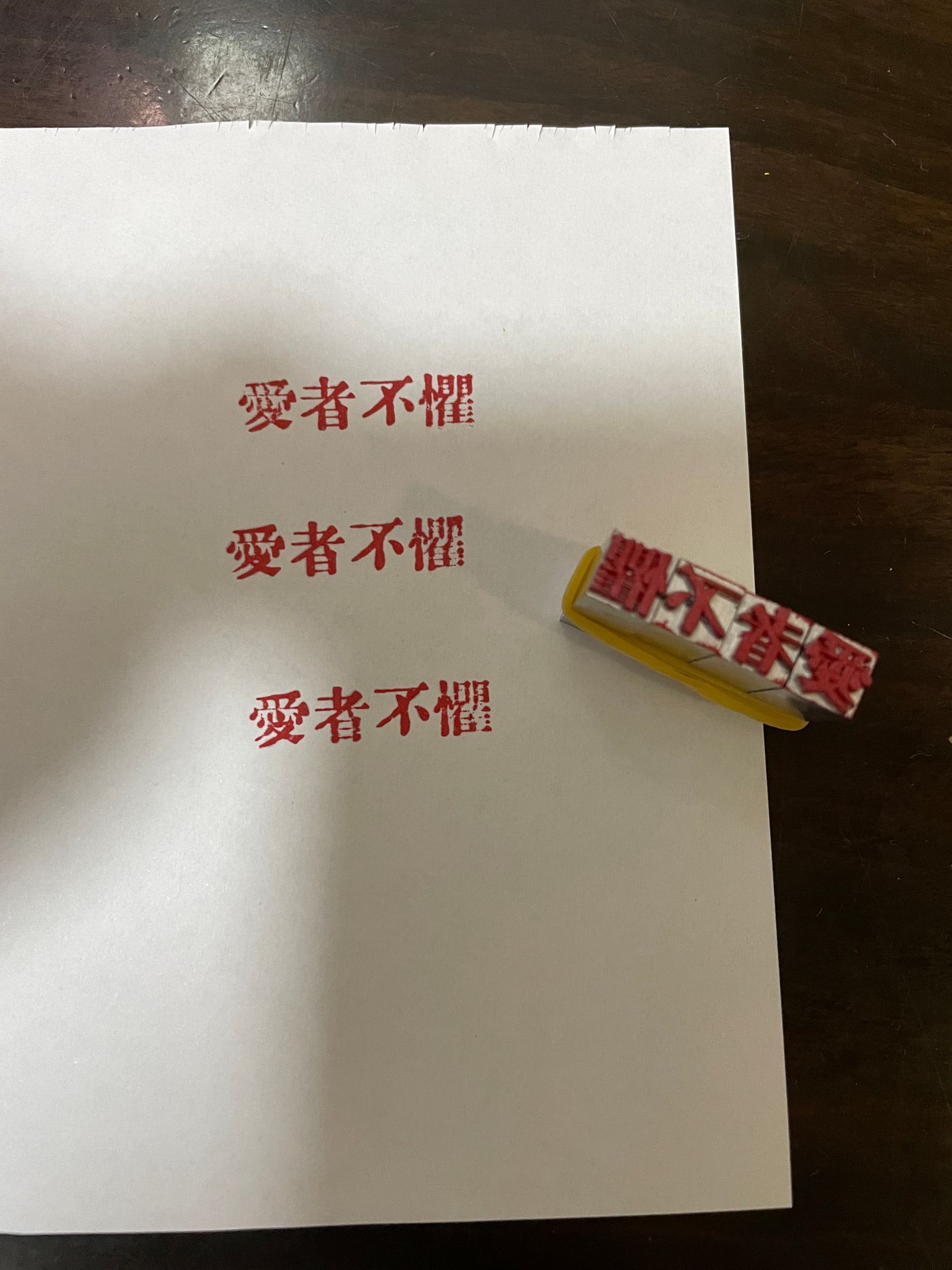After reading "Hong Kong Characters"
(Warning: There is thunder in the text, please judge for yourself)
Mr. Dong Qizhang's new work "Hong Kong Characters" has been read, but has not been written for a long time. I have been reading this book very slowly, because on the second day of publication, I have already bought it, and my friends have not yet bought/started reading it. After reading it, there are still a few points that I still have not figured out, so I have to put it aside for the time being.
I have a habit: when reading, I will paste "shrimp sticks" next to important sentences, and then copy them into my notebook. In the process of copying, re-reading the text, I began to understand the author's ideas and what he wanted to express, and those key words also appeared in my mind.
The content of the story is roughly as follows: Lai Chenhui, the protagonist, was temporarily suspended from school due to an attempted suicide. However, due to the chance encounter with Teacher Bei, he came into contact with the first Chinese typeface in Hong Kong, "Hong Kong Characters". At the same time, Lai Chenhui unraveled an unknown family history through "Word Spirit"...
~~~~~~~~
A friend said that Dong Sheng should be listed as a "protected writer", which may be a bit of a stretch; however, what I feel in this work is that the writer skillfully uses an object (Hong Kong characters) to tell stories, which hides his views on society . His work responds to society. I remember seeing Mr. Pan Guoling's interview with the function word a few days ago, in which there is also the following expression:
Literary works can't be too out of touch with the times, otherwise the works can't reflect the pulse of the times, but they can't fully fit into the world. They always have to have some centrifugal force on the real world, and there's a kind of dissatisfaction, but it's not that they don't pay attention.
~~~~~~~~~
It has been said that it is rare to see such a large bibliography of a literary work. Most of these bibliographies follow foreign missionaries who came to China to preach the gospel, from Macau to Malacca and then to Hong Kong. The invention of Hong Kong characters is not unrelated to the spread of Christianity. Therefore, the author also used the important Christian word "spirit" to tell Chen Hui about the birth of the Hong Kong word and the family story. This also came very well, because Chenhui committed suicide and her soul experienced death, so she got the "psychic" skill. With the help of her counselor, it is realistic and reasonable to make her more accepting of her communication with her ancestors.
I have said before that there are many key words/words in the book, such as "dream", "fatherhood", "soul", "machine". Key words/words are not unfamiliar to Christians, because they are often used in Bible study. Directly speaking, it is the point.
When I was transcribing the text, I happened to copy this paragraph with the "shrimp stick":
Printing is just a tool, but printing is also an expression of desire. Metals and machines are manifestations of the instinct to conquer, possess, and dominate streaming. The flesh is either crushed, or yields to the machine, or joins the machine. The soul can turn machines into flesh and matter into life. I believe so. But what if the soul is also nothing more than a product of machines and matter? In front of the demons of materialism, what is left of us so that we can not be robbed or stripped? (page 266)
Those who have experienced it will understand what it means. I didn't expect that when I read it again, I suddenly felt enlightened
It is the "key verse" of the entire book. Then, after thinking about the whole book, it turns out that "Hong Kong characters" and "Hong Kong history" all surround this key section (the center) and become the part of the novel (diffusion).
If this "logic" is used to extend, then Chenhui, Teacher Bei, Alai (Axiu), Daifu (Revival), Xinger, from their names to their "life", all express their endings.
~~~~~~~~~
Let’s start with Dai Fu and Xing’er. It’s easy to understand: “Happiness”. It's just that in Hong Kong at that time, happiness came with difficulties: the war in the north, the chaos in the early days of the British occupation of Hong Kong, the distrust of foreigners by the Chinese, etc. A half-tang half-fan girl was sold to a brothel. Although Dai Fu and Nga Wang helped her get out of the fire, she ended up committing suicide. The name didn't bring her any "lucky". And Dai Fu, perhaps in her unfortunate life, "brings" a little "blessing".
Morning Hui was not "as her name suggests" at first: Guangming (ひかり), because she attempted suicide at first. Looking for the "Hong Kong character", looking for the story of her life/identity. Rather than discovering one's life/identity, it is better to say how to face the future after knowing the identity. And Teacher Sadness is as his name suggests, from the moment he appeared on the stage to the end of his ending, it was all sadness.
If Chenhui and Teacher Bei are put into the social context written by the author, it is not difficult to find that their "end" is actually a response to the thoughts/actions of some people in the society. What Teacher Bei chose was that he would rather be broken than broken tiles:
...I found that I was not a rebel, but an oppressor! As a man, as a husband, as a teacher, as an artist, and as a potential father, it all makes me hate it! But I couldn't help but continue to play these roles, irresistibly towards the confrontation and conspiracy between Yang-soo and the prince. I finally understand that the so-called artist is destined to become a possessor. I can't play a righteous warrior fighting the demons outside. I can only fight with the demons in myself, and die with the demons. (page 283)
As for Chenhui's lover, Alai, he has this idea:
Who is included? Tolerate yourself? Ash is me too. Maybe you're right, though, it's better to make peace with yourself than to fight with yourself. Whether it is right or wrong, bear it together, there is no choice anyway. We can also choose friends. But we can't choose ourselves, we can't choose who lives in us. So, in the end, we have to be faithful to whoever is inside of us. (page 174)
~~~~~~~~~
I still remember the moment when I finished reading the book, there was really no joy, and my heart was actually very bitter. Looking up, the sun is shining. If I had a song to accompany this scene, I would choose Bach's Violin Partita No. 2 in D Minor, BWV 1004: III. Sarabande.
I remember reading the comments, saying that novels are not philosophy, no conclusions need to be drawn, and novels do not need to provide solutions.
When I revisit the book, I see this passage, which may give me a little inspiration:
(Chenhui) Could it be that you are not normal? I'm in an abnormal situation with you, so that's why I feel normal?
(Alai) You are thinking a bit complicated. People who read a lot are really different. I don't quite understand what is normal and what is abnormal. The difference between the two is not very obvious, and there may even be no difference. Don't care if it's normal or not, as long as we're all on the same side, isn't that ok?
Alai, you are always so open-minded, as if you can deal with anything that happens.
There is nothing to deal with, just resignation.
Is it alright to just accept it?
There is no good or bad. To survive or not to survive, there are only two choices.
Alai chooses to live forever.
So I also hope you choose the same as mine.
But survival is hard!
It's not easy not to survive.
makes sense.
Since it is equally difficult, then difficult or easy is not a reason to choose. . . (pages 270, 271)
~~~~~~~~~
"Hong Kong Characters" (from blog)—
https://www.books.com.tw/products/0010906931
[Invisible・Vegetable Mud] "Li" and separation, literature and the times are in harmony with each other - Interview with Pan Guoling
https://p-articles.com/heteroglossia/2522.html
Bach Violin Partita No. 2 in D Minor, BWV 1004: III. Sarabande
https://www.youtube.com/watch?v=8K8KrAPnvQ8


Like my work? Don't forget to support and clap, let me know that you are with me on the road of creation. Keep this enthusiasm together!
